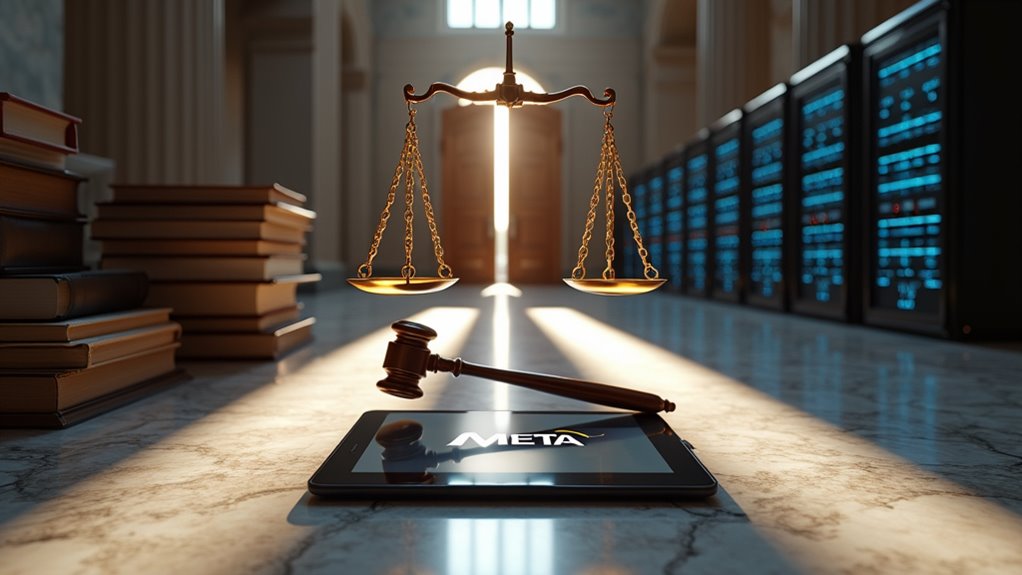Judge Vince Chhabria has allowed authors’ copyright lawsuit against Meta to proceed, rejecting the tech giant’s initial dismissal attempts. The case, filed by Richard Kadrey and Sarah Silverman, alleges Meta scraped copyrighted books from pirate sites to train its LLaMA AI. With industry publishers backing the authors and a potential $30 billion market at stake, this showdown could rewrite the rules for AI training data. Turns out, teaching robots to write might cost more than Meta bargained for.
Dozens of authors are squaring off against one of the world’s most powerful tech giants in a legal battle that could reshape the future of artificial intelligence. Meta, the $1.4 trillion behemoth behind Facebook, is facing accusations that it pilfered copyrighted works to train its LLaMA AI model without so much as a “pretty please” to the creators.
The saga began in July 2023 when authors including Richard Kadrey and comedian Sarah Silverman filed suit in California, claiming Meta had swiped their intellectual property faster than a toddler grabbing cookies.
Though Judge Vince Chhabria initially dismissed many claims, the authors came back swinging with an amended complaint that’s now moving forward.
Despite early setbacks in court, the authors regrouped with a strengthened legal challenge that has gained judicial traction.
Meta’s legal team is waving the “fair use” banner like it’s the last helicopter out of a disaster movie. They’ve even tried arguing the authors lack standing to sue at all—a claim the judge swatted away, ruling that copyright infringement represents “concrete injury sufficient for standing.”
The plot thickened when plaintiffs alleged Meta obtained works from pirate sites like Anna’s Archives and LibGen. Even more damning? Claims that Meta deliberately removed copyright management information to cover their tracks.
The judge described this inference as “reasonable, albeit not particularly strong.”
The publishing world isn’t sitting this out. The Association of American Publishers jumped into the fray with an amicus brief in April 2025, arguing that Meta’s wholesale copying of creative works doesn’t qualify as transformative fair use. The brief specifically contends that authors’ words are stored in the model, not just statistical data.
The lack of accountability and transparency in AI training practices has experts concerned that tech companies may continue operating without meaningful oversight of their data acquisition methods.
The case shares striking similarities with the New York Times lawsuit against Microsoft and OpenAI, which also alleges unauthorized use of copyrighted materials for AI training.
The economic stakes are massive. The AI training license market—currently valued at $2.5 billion—is projected to balloon to $30 billion within a decade.
Authors maintain that licensing options already exist, undermining Meta’s defense.
This case is just one of approximately 40 lawsuits targeting AI companies by publishing industry entities. Whatever the outcome, it may establish whether AI companies must pay the piper—or if they can continue training their models on others’ creative work for free.







